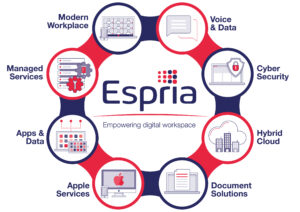With few exceptions, printers built since 2002 contain hard drives, much like your personal and business computers. These hard drives contain every document you have ever scanned, copied or emailed. This article discusses the progression of security printing and what your company can do to protect itself in a world of increasing data breaches.
An investigation on secure printing
In 2010, a landmark expose in the United States was presented by CBS News entitled Digital Photocopiers Loaded With Secrets. In it, the feature described the average business printer as ‘a digital time-bomb packed with highly personal or sensitive data.’
A news team went to one of 25 warehouses in the country to test their ability to access personal and ‘restricted’ information from the hard drives of printers. Some information were used to pick from a selection of about 6,000 printers, including the amount of pages printed and the price of the printer. Four printers were chosen and approximately $300 was paid for each.
In 30 minutes the hard drives were taken from the printers and a free forensic software program scanned tens of thousands of documents in under 12 hours.
Documents found included:
- Domestic violence complaints and a list of wanted sex offenders from a Buffalo, NY Police Sex Crimes Division
- Targets in a drugs raid from the Buffalo Police Narcotics Unit
- 95 pages of pay stubs complete with names, addresses, social security numbers and $40,000 in photocopied checks from a New York Construction company.
- 300 pages of medical records from a New York Insurance Company that included blood test results, cancer diagnoses, and drug prescriptions.
This article is consistently quoted in the security printing industry because the results were so substantial. The report alludes to a breach in national as well as personal security when it mentions that 2 shipping containers were being loaded with used copiers from that same warehouse and headed to Argentina and Singapore.
Hacks on uk businesses fall slightly, yet grow in expense
Fast forward to a 2015 article in Print Week entitled ‘Sloppy Security is Making Printing Companies Targets for Cyber Criminals’. Initially, the news in good. The Information Security Breaches Survey 2014, authorised by the Department for Business, Innovation and Skills indicated that the number of large leaks in organisations in the UK decreased from 86% in 2013 to 81% in 2014. A five percent reduction is certainly good, but it leaves a lot of room for improvement.
Furthermore, data leaks are growing in expense, as quoted by Print Week author Simon Creasey, who states, ‘…while the number of attacks might be decreasing, on the flipside, the average cost of breaches increased significantly for the third year running. For small organisations the worst breaches cost between £65,000-£115,000 on average and for large organisations in the region of £600,000-£1.15m – any company, large or small, found guilty of contravening the Data Protection Act 1998 could be fined a flat rate of £500,000’.
The repercussions of security breaches are expensive and can damage the reputation of businesses. Colin Tankard, managing director at the secure data management company Digital Pathways states, ‘If you lose someone’s data they’re not going to use you anymore and word will get around, so you could end up going out of business’.
What to do to prevent security breaches
The effects of data leakage are substantial and potentially fatal for businesses. However, the solution is rather simple. Quocirca research indicates that a security assessment significantly reduces your chance for data loss. The next step includes implementing managed print solutions for your business.
Modern printers for business are offering options such as removeable hard drives, anti virus software, and secure release printing which restricts access to anyone but the user by requiring a passcode, or access card. There are image overwrite options, embedded faxes and auditing services that can tell you how much different departments or individuals are printing and what information is being printed.
The money invested in these solutions can be made back in the reduction of print spending, often eaten up by unclaimed print documents. Overall these measures are not only crucial for business security, they are a responsible, cost effective, green printing solution that benefits everyone.
Quocirca research indicates that a security assessment significantly reduces your chance for data loss. The next step includes implementing managed print solutions for your business.


